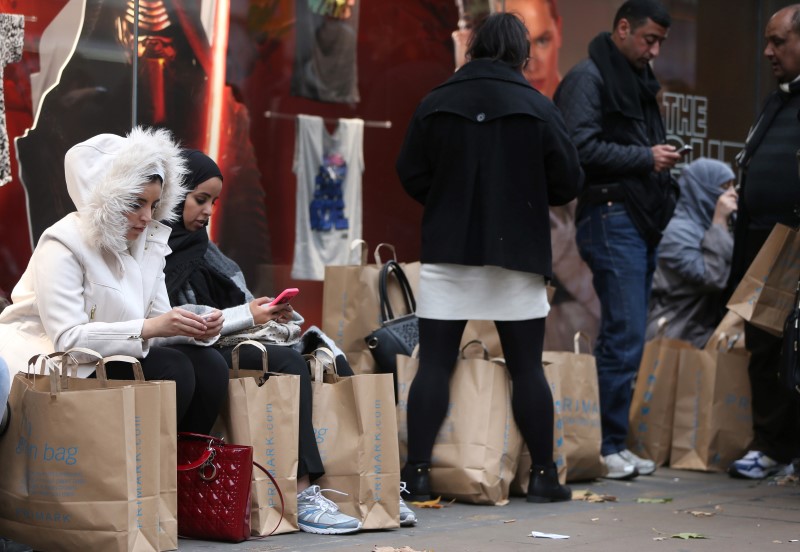Gold prices set for weekly gains on dovish Fed outlook; silver near record high
By Jonathan Cable
LONDON (Reuters) - Britain's economy will produce solid growth next year although the rosy outlook is clouded by doubts over whether the country will remain a member of the European Union, a Reuters poll predicted on Wednesday.
Prime Minister David Cameron has promised to hold a referendum on a possible "Brexit" before the end of 2017. Uncertainty over the vote's result was listed in the poll as the biggest risk to Britain's economy in the coming year.
"The referendum on the UK's membership of the EU will significantly increase business uncertainty and weigh on business investment," said Daniel Vernazza at UniCredit.
With the last few opinion polls showing a slim majority wanting to leave, Britain's membership is on a knife edge. Cameron, who has said he wants Britain to stay in a reformed EU, is trying to negotiate new rules before holding the vote.
Ratings agency Moody's said this month an exit from the EU would hurt Britain's economy by damaging trade and investment and could put its credit rating at risk of a downgrade.
But the boss of Schroders (L:SDR), Britain's biggest-listed fund manager, has called for calm and said concerns that the economy would collapse after an "out" vote were overdone.
"I think it unlikely we will vote to leave. If we do, we will reach an accommodation with the EU after a couple of years, one that works for both sides. Talk of economic suicide or catastrophe is very wide of the mark," Schroders chief executive Michael Dobson said.
The Bank of England has shied away from taking sides in the debate although Governor Mark Carney said in October that Britain's membership of the EU had helped make the country's economy dynamic over four decades.
Government spending cuts -- Chancellor George Osborne is trying to turn Britain's deficit into a surplus -- as well as slowing pay increases also posed risks, other economists said.
FOLLOW THE LEADER
With economic growth expected to remain a solid 0.5-0.6 percent per quarter through to 2017, and inflation seen picking up from near zero as the plunge in oil prices drops out of calculations, markets and economists are focussing on when the Bank will raise interest rates.
The BoE's Bank Rate has sat at a record low of 0.5 percent since early 2009 and Wednesday's poll said it would be at least April before it rises by 25 basis points.
None of the 42 economists polled expect a move when the Monetary Policy Committee announces its latest decision on Thursday. Markets are pricing in a first increase around August.
If the poll is accurate, a second quarter move would probably put the Bank several months behind the U.S. Federal Reserve, which is widely predicted to increase borrowing costs for the world's largest economy on Dec. 16. [FED/R]
But both central banks are expected to follow a gradual tightening path and a majority of economists in the poll who answered an additional question said the Bank's rate hike trajectory would closely follow the Fed's.
"Rate hike trajectory for the Fed and Bank of England should be similar, that is, both limited and gradual," said Thomas Bloomfield at 4CAST.
After hiking in the second quarter, the Bank will wait until the dying months of 2016 before adding another 25 basis points. Even at the end of 2017, Bank Rate will still only sit at 1.75 percent, and a year later is forecast to be just 2.00 percent.
(Polling by Krishna Eluri and Hari Kishan; Editing by Ross Finley and Catherine Evans)
